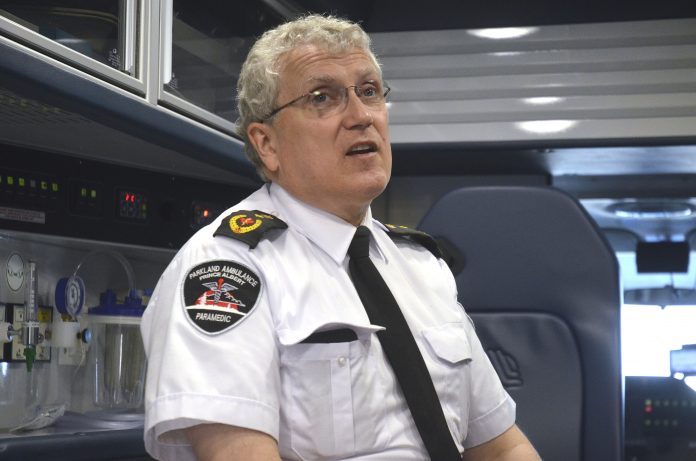
Emergency Services personnel in Prince Albert are sounding the alarm following a jump in drug overdoses in the community.
The Prince Albert Police Service (PAPS) issued a press release on Sunday warning about what they called a “recent and concerning” increase in overdoses. Police responded to four suspected overdoses where naloxone was administered on the evening of May 8 alone.
In their press release the PAPS reminded residents that there is some legal protection provided under the Good Samaritan Drug Overdose Act for individuals who seek help during an overdose.
Parkland Ambulance’s Lyle Karasiuk said from 8 a.m. Wednesday to 8 a.m. Thursday, paramedics saw six overdoses where naloxone was required to reverse overdose symptoms. Although all six patients survived, they also all ended up in hospital.
“It’s unusual for us to see a sharp spike like that,” Karasiuk said. “When we see a spike like that, honestly, we often think there is something in the illicit drug supply that has hit the street that is causing this to be a bigger problem than it usually is.”
Karasiuk said drug overdose calls are not uncommon in Prince Albert, but to have six in 24-hours is “very unusual”. Illicit drug use is not just a Prince Albert problem, Karasiuk said, but people still need to be aware of people who are at-risk because they use substances not commonly prescribed by a physician.
Karasiuk pointed to Crystal Meth as an example of a drug made up of several dangerous and harmful chemicals that are mixed together. The process is not professional, he said, meaning the people who create it aren’t always measuring what goes into the drug, or exactly how much of it there is.
“It’s a little of this, a little of that, and if they run out of something, they mix it with something us,” he explained. “It’s not you or I taking a substance like Tylenol, which is tightly controlled and regulated and made exactly the same time over and over.”
Karasiuk said Parkland Ambulance’s services were not heavily stressed by the increase in overdoses, but said it’s still a serious concern.
Symptoms of an opioid overdose may include: slow or no breathing; gurgling, gasping or snoring; clammy, cool skin; and blue lips or nails. If you suspect someone has overdosed on any drug, call 9-1-1. Emergency responders, including frontline police members, carry naloxone, a fast-acting drug used to temporarily reverse the effects of overdoses caused by opioids.
Members of the public can also keep naloxone on hand if they or someone they know is at risk of overdose. The Government of Saskatchewan offers a ‘take home naloxone’ kit available free of charge at many locations in the province.

